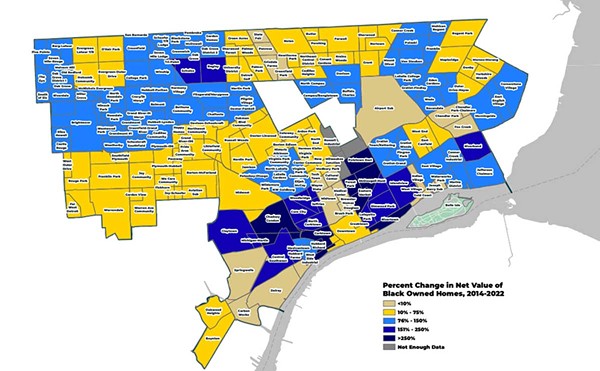"Well, what did you expect?" laughed one of my cynical pals when Detroit’s mayor appointed his main man, Freman Hendrix, deputy everything, to chair the reform board charged with jump-starting the rebuilding of the city’s public schools.
"That ought to (prove) this is nothing but a puppet board," he said. Days later, said pal was proven wrong, when one of the alleged puppets slipped his strings, refused to accept the majority choice as interim czar and the state Legislature had, embarrassingly, to step in.
Yet for many, the image persists of the tall, dapper, 48-year-old Hendrix as merely the mayor’s man, a functionary with a fanatic loyalty to the Dennis and a well-honed instinct for the jugular. There are, indeed, those who do not love him.
"Tenacious, unforgiving – maybe even vicious," was Sharon McPhail’s assessment last year, while gearing up to take on Wayne County Executive Ed McNamara. Hendrix had been Archer’s de facto campaign manager when she ran against him in 1993.
Hendrix did not say nasty things about her last year; terminators don’t have to. Coolly, efficiently, he held a closed-door campaign meeting. "Let’s kill her," he said evenly. Hasta la vista, baby. Early polls had shown a close race; in the end, she lost even among black voters in Detroit, probably ending her political career.
The man gets the job done. Yet on close inspection, he shows alarming signs of being maybe even, dare we say it, a normal person. Try to imagine what Archer or McPhail or any other serious politician does for fun outside politics. (No, not Clinton, and not that.) Yet something else does stir the deepest passions in Freman Hendrix.
Baseball. Little League Baseball. "I believe in it so wholeheartedly," he told me, "because I have been in contact with people out in the community trying to change the world. I say if everybody who was so quick to jump on a soapbox to bring some attention to themselves spent some time working in a youth recreation program, many of the problems we face today wouldn’t be as bad." He means it.
Hendrix has authentic grassroots ties. But what seems to have done the most to shape him was, of all things, management skills learned in the Navy. Though he joined during the height of Vietnam, he spent his time placidly in Japan, Alaska and stateside. What the military did was "expose me to the world and different people, gave me a level of tolerance and demanded that you work with others … team building and all that." Significantly, too, he was a communications technician.
Out of the service, he came home to major in business at Eastern Michigan University and thought about a career making big bucks with one of the Big Three. Had it not been for his older sister, Emmanella ("Mausi"), he might have done something like that.
Yet he had a social conscience; though he came from a working-class black family, it was a solid Catholic home (six kids) marked by not only the civil rights movement, but that late ’60s flowering of post-Vatican II social conscience. Mausi had ridden the buses and risked a busted head at segregated lunch counters. Her baby brother took a job with the city finance department at less money than he could have made elsewhere.
He rose rapidly. "I was constantly on my staff, demanding when they answer the phone, they do it with a certain amount of respect." That was a rare thing in any city department in the Young era. Successful as a technocrat, he was still restless.
Early in the 1980s, a small group of neighborhood activists seized control of the Northwest Detroit Democratic Club. Hendrix became president. From now on, he announced, they would screen and endorse candidates themselves, not just rubber-stamp Coleman’s choices. That set off a howl in the machine.
A job with Ed McNamara followed, then a meeting with Archer. The men hit it off; their skills complemented each other. Significantly, Hendrix does not need constant recognition. The successful campaign to get voters to approve money for the new baseball stadium was entirely his behind-the-scenes doing. Freman has, insiders know, snuffed many a brush fire in the making, usually without a sniff of smoke in the press.
That does not mean he will be mayor. Nor is it clear he even wants the job; there are signs he might not. The talents that get it done aren’t always the same that win sound-bite accolades in the "if-it-bleeds-it-leads" local news of the day.
And some forget that if Archer does leave before his term ends in 2002, Gil Hill, not Hendrix, becomes the next mayor. Nor is it clear if the Dennis is, in fact, leaving; every day makes it more likely he’ll end up offering himself for a third term.
Yet one has to wonder what it would be like to have a mayor who would insist that power meetings be fitted around the schedule of his Little League Red Sox.
"You don’t stop doing the things that 1) are your passions and 2) the reasons that you are who you are and got you where you are," Hendrix told someone who wondered why he was "wasting" time with kids who can’t vote. Whatever else you think about him, we could do worse. Matter of fact, we probably will.





